The Best Albums of February 2024
Photos by Tommy Kha & Bobbi Rich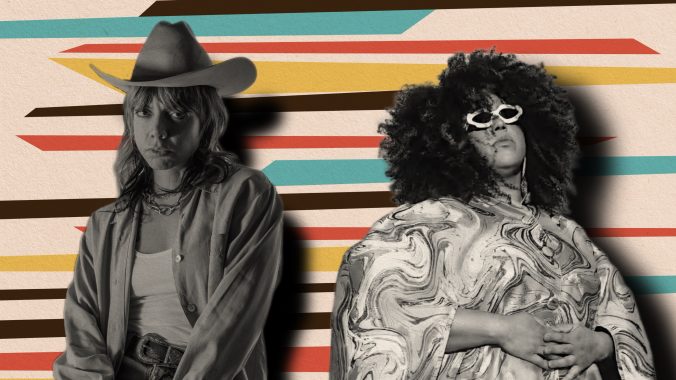
The leap month is nearly over, but February came in and out with a bang, offering a dashing arrangement of new albums to gush over. From the ambition next chapter of Brittany Howard to the jangle pop majesties of Ducks Ltd. to longtime favorites like Hurray for the Riff Raff and newcomers like Friko, we’re looking back at the 10 albums that defined the last 29 days. Catch up on our favorite releases of January here and, without further ado, here are the best albums of February 2024:
Brittany Howard: What Now
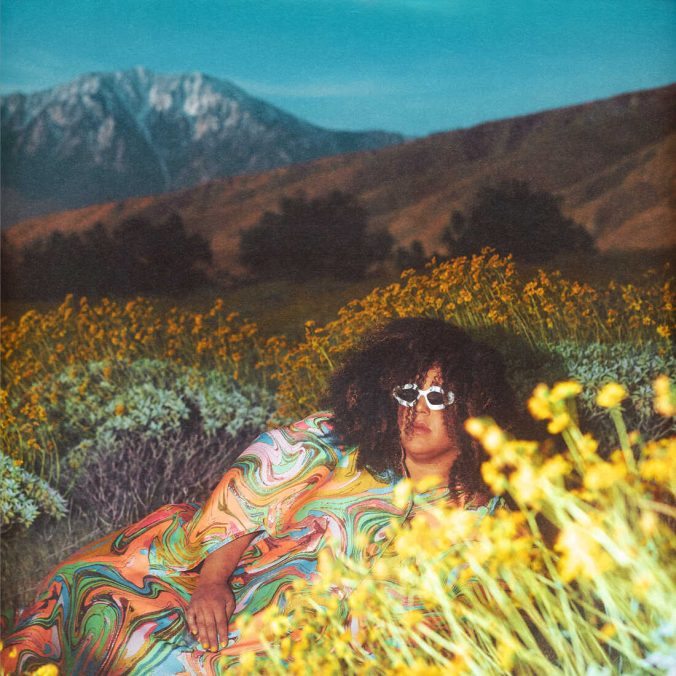 Relationship blues, healing, making sense of self-sabotaging patterns in friendships and romance are all explored through a jazzy, upbeat, audacious and vulnerable lens on What Now. The album is trimmed of subcutaneous sound, rounding out at just under 38-and-a-half minutes. Brittany Howard is here for a good time, not a long time, and bluesy earworms like “Prove It To You” and “Power To Undo” get under your skin, fizzle in your bloodstream and get your toes tapping and then, as cleanly as they began, wrap up neatly. There’s a confidence and vulnerability Howard fearlessly reveals on this album, which is more adventurous and riskier than Jaime. The Prince-inspired, funk-infused “Prove It To You,” with its brilliant, unabashed, funky soul, finds Howard contrasting the album’s soundscape by dialing back the drama, which is especially noticeable on closing track, “Every Color In Blue.” When Howard made her home in a spacious Nashville cottage just prior to the pandemic hitting, the garage became a space for collecting vintage recording gear and the ghosts of past greats, like James Brown, lurk within the buzzy guitar and buoyant bass in What Now. Contrasted with the nostalgic blues and funk of the 1970s is a glimmer of contemporary New Age elements—think bells, crystals, tarot, psychic energies and astrology. What Now addresses big themes—love, life and destruction—and, in places, it delivers a massive, eclectic sound. —Cat Woods [Read our full review and cover story]
Relationship blues, healing, making sense of self-sabotaging patterns in friendships and romance are all explored through a jazzy, upbeat, audacious and vulnerable lens on What Now. The album is trimmed of subcutaneous sound, rounding out at just under 38-and-a-half minutes. Brittany Howard is here for a good time, not a long time, and bluesy earworms like “Prove It To You” and “Power To Undo” get under your skin, fizzle in your bloodstream and get your toes tapping and then, as cleanly as they began, wrap up neatly. There’s a confidence and vulnerability Howard fearlessly reveals on this album, which is more adventurous and riskier than Jaime. The Prince-inspired, funk-infused “Prove It To You,” with its brilliant, unabashed, funky soul, finds Howard contrasting the album’s soundscape by dialing back the drama, which is especially noticeable on closing track, “Every Color In Blue.” When Howard made her home in a spacious Nashville cottage just prior to the pandemic hitting, the garage became a space for collecting vintage recording gear and the ghosts of past greats, like James Brown, lurk within the buzzy guitar and buoyant bass in What Now. Contrasted with the nostalgic blues and funk of the 1970s is a glimmer of contemporary New Age elements—think bells, crystals, tarot, psychic energies and astrology. What Now addresses big themes—love, life and destruction—and, in places, it delivers a massive, eclectic sound. —Cat Woods [Read our full review and cover story]
Chelsea Wolfe: She Reaches Out To She Reaches Out To She
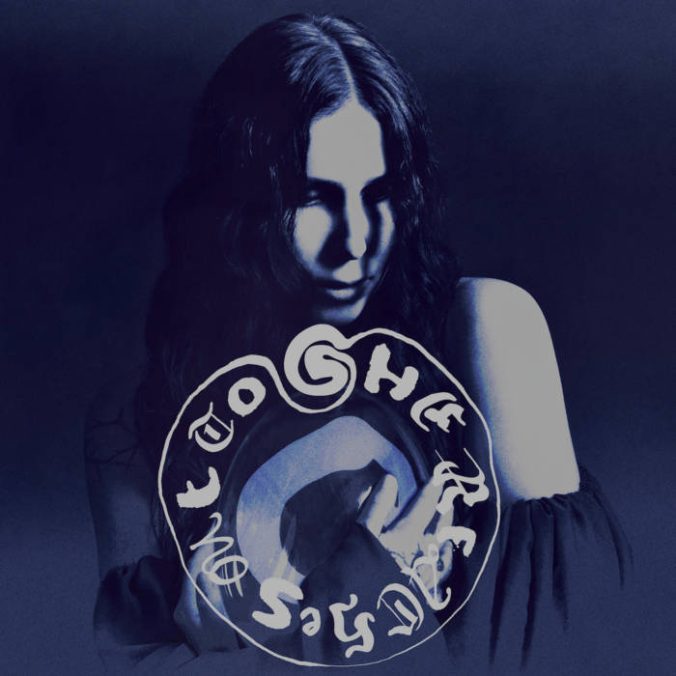 This theme of rebirth mirrors the album’s story as much as Chelsea Wolfe’s own musical journey. She Reaches Out To She Reaches Out To She perfectly blends her back catalog, reflecting on her cyclical life journey throughout and reviving the best genre influences from her past efforts. This cherry-picked combination finds her occupying an inky swell of electro-pop with flourishes of her heavier works—Hiss Spun and Abyss. Each track exists as an individual grave—a memento mori of Wolfe’s past let go through the music she makes. You might be trapped in the graveyard, but the memories remain buried, only allowing you to reflect on the changes you’ve made. As industrial as it is spiritual, Wolfe’s particular brand of trip-hop finds the perfect blend between the carnal and the mystical. She Reaches Out To She Reaches Out To She finds Chelsea Wolfe at her most creative while reviving her particular, audacious and revered brand of dark storytelling. Every piece of the record finds a way to tie into the themes at its core while still pushing Wolfe’s own sound forward in earnest. Without her intoxicating vocal prowess, the nuance of torment laced in each line would be lost—and she holds an extraordinary dynamic power in the space between hope and despair. There’s no mistaking that Wolfe’s subconscious is a labyrinth we are all trying to map a path through, but listeners will be happy getting stuck in the shadowy corners for now. —Olivia Abercrombie [Read our full review and feature]
This theme of rebirth mirrors the album’s story as much as Chelsea Wolfe’s own musical journey. She Reaches Out To She Reaches Out To She perfectly blends her back catalog, reflecting on her cyclical life journey throughout and reviving the best genre influences from her past efforts. This cherry-picked combination finds her occupying an inky swell of electro-pop with flourishes of her heavier works—Hiss Spun and Abyss. Each track exists as an individual grave—a memento mori of Wolfe’s past let go through the music she makes. You might be trapped in the graveyard, but the memories remain buried, only allowing you to reflect on the changes you’ve made. As industrial as it is spiritual, Wolfe’s particular brand of trip-hop finds the perfect blend between the carnal and the mystical. She Reaches Out To She Reaches Out To She finds Chelsea Wolfe at her most creative while reviving her particular, audacious and revered brand of dark storytelling. Every piece of the record finds a way to tie into the themes at its core while still pushing Wolfe’s own sound forward in earnest. Without her intoxicating vocal prowess, the nuance of torment laced in each line would be lost—and she holds an extraordinary dynamic power in the space between hope and despair. There’s no mistaking that Wolfe’s subconscious is a labyrinth we are all trying to map a path through, but listeners will be happy getting stuck in the shadowy corners for now. —Olivia Abercrombie [Read our full review and feature]
Ducks Ltd.: Harm’s Way
 Harm’s Way is frenetic and warm, seamless yet meticulous. Tom McGreevy and Evan Lewis wrote the album while on tour opening for bands like Nation of Language and Archers of Loaf, and the bustling, spacious instrumentation mirrors that period of travel and of new stages in new cities. Recalling the work Ducks Ltd. did on their 2021 LP Modern Fiction, McGreevy and Lewis are unabashedly content with recycling licks and offering no solutions to the anguish they sing about. They aren’t making nihilistic music, instead engaging with stories that tug on hope yet don’t ignore the dreariness of it all. And it can be easy to overlook that push-and-pull, given that Harm’s Way lingers in its own jitteriness and wants you to feel first, think next. It’s what makes songs like The Smiths’s “This Charming Man” or Orange Juice’s “Rip It Up” timeless, this propulsive, aching urge to play fast, sing about being bruised and, most of all, juxtapose thrashing, explosive tempos with tender, sugary octaves. Harm’s Way is an album about cyclicality written during a cyclical tour spent nursing cross-country exhaustion. Ducks Ltd.’s approach to heaviness sticks out like a sore thumb, as if they intentionally want you to remember that, at its jangly, syrupy core, Harm’s Way is a sad album with no conclusion other than it’s dark outside all the time. They’ve earned this record and these tracks, and their attention to repurposing riffs runs deeper than McGreevy’s vocals or Lewis’ shredding: When you strip away all of the language and percussion and catchiness of Harm’s Way, the sorrow we’re left with sounds the same. —Matt Mitchell [Read our full review]
Harm’s Way is frenetic and warm, seamless yet meticulous. Tom McGreevy and Evan Lewis wrote the album while on tour opening for bands like Nation of Language and Archers of Loaf, and the bustling, spacious instrumentation mirrors that period of travel and of new stages in new cities. Recalling the work Ducks Ltd. did on their 2021 LP Modern Fiction, McGreevy and Lewis are unabashedly content with recycling licks and offering no solutions to the anguish they sing about. They aren’t making nihilistic music, instead engaging with stories that tug on hope yet don’t ignore the dreariness of it all. And it can be easy to overlook that push-and-pull, given that Harm’s Way lingers in its own jitteriness and wants you to feel first, think next. It’s what makes songs like The Smiths’s “This Charming Man” or Orange Juice’s “Rip It Up” timeless, this propulsive, aching urge to play fast, sing about being bruised and, most of all, juxtapose thrashing, explosive tempos with tender, sugary octaves. Harm’s Way is an album about cyclicality written during a cyclical tour spent nursing cross-country exhaustion. Ducks Ltd.’s approach to heaviness sticks out like a sore thumb, as if they intentionally want you to remember that, at its jangly, syrupy core, Harm’s Way is a sad album with no conclusion other than it’s dark outside all the time. They’ve earned this record and these tracks, and their attention to repurposing riffs runs deeper than McGreevy’s vocals or Lewis’ shredding: When you strip away all of the language and percussion and catchiness of Harm’s Way, the sorrow we’re left with sounds the same. —Matt Mitchell [Read our full review]
Friko: Where we’ve been, Where we go from here
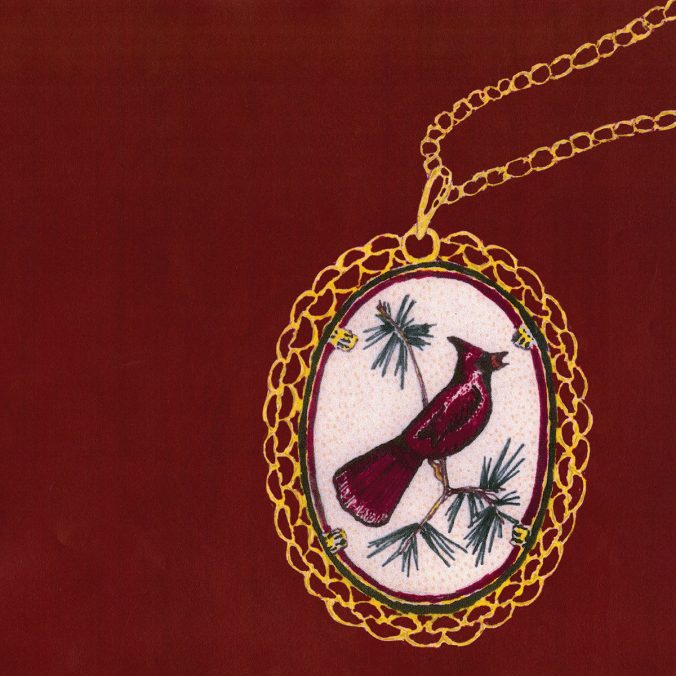 Where we’ve been, Where we go opens with “Where We’ve Been,” a rapturous and all-consuming track that grows and extends feverishly. Lively, full-sounding percussion and stirring vocals lift the track into a grandiose release of sound that relishes in its own catharsis. The lyrics describe a universal sense of hopelessness and how we may find relief in others. “And your teeth hurt more than the day before / It’s time to get another job/Four feet between a wall and window make your wife a widow, oh / So throw your arms around me,” sings Kapetan on the chorus. The album moves at an unexpected pace, transitioning from visceral high-energy tracks to subdued ballads seamlessly.
Where we’ve been, Where we go opens with “Where We’ve Been,” a rapturous and all-consuming track that grows and extends feverishly. Lively, full-sounding percussion and stirring vocals lift the track into a grandiose release of sound that relishes in its own catharsis. The lyrics describe a universal sense of hopelessness and how we may find relief in others. “And your teeth hurt more than the day before / It’s time to get another job/Four feet between a wall and window make your wife a widow, oh / So throw your arms around me,” sings Kapetan on the chorus. The album moves at an unexpected pace, transitioning from visceral high-energy tracks to subdued ballads seamlessly.
Friko’s penchant for theatrical emotion makes these adjustments feel natural and warranted in context of telling the greater emotional story of the album. The band is known for their spirited live performances, a quality that pervades the unrestrained anthems on the album. “Crashing Through” whips listeners into a rowdy and distorted introduction saturated with ringing guitars and pounding percussion; Kapetan’s subdued vocals feel whispered in the verses, creating an effect of distance and aloofness that contrasts the noisy and unbridled instrumentals at the beginning and end of the track. Raucous and jeering guitar riffs conclude the track, appearing in red, incendiary bursts similar to the end of “Statues,” in which the hard-hitting track falls into a gritty cacophony of distortion and noise. Where we’ve been, Where we go from here leaves you breathless, and the duo’s unbridled approach to songwriting and instrumentation creates striking and emotive tracks that expand lavishly. —Grace Ann Natanawan [Read our full review and feature]
Hurray for the Riff Raff: The Past Is Still Alive
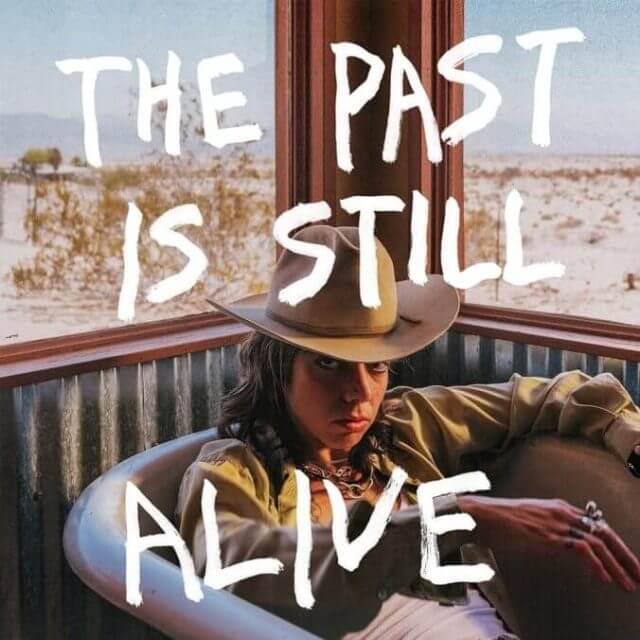 The Past Is Still Alive returns to the folk sounds of Hurray for the Riff Raff’s earliest work, with an electric rock current and a focus on solidarity among the oppressed—as well as a community around Segarra that includes Meg Duffy, Anjimile, SG Goodman, Phil and Brad Cook and Conor Oberst. The album opens with “Alibi,” rooted in love and defiance and addressed to an addict. Segarra has often explored the complicated rites of loving, particularly loving those on the edge, and on “Alibi” they pair this with a reminder of the need to take care of yourself. Kind but firm, it seems a direct response to the casual drug use and self-destruction of The Navigator’s “Living in the City”: “You don’t have to die if you don’t want to die.” The Navigator painted addiction as a kind of symbol, a symptom of city suffocation that its leading character Navita had to escape. A few years out and stripped of the veneer of a concept album, The Past Is Still Alive confronts it directly, and focuses on finding an answer.
The Past Is Still Alive returns to the folk sounds of Hurray for the Riff Raff’s earliest work, with an electric rock current and a focus on solidarity among the oppressed—as well as a community around Segarra that includes Meg Duffy, Anjimile, SG Goodman, Phil and Brad Cook and Conor Oberst. The album opens with “Alibi,” rooted in love and defiance and addressed to an addict. Segarra has often explored the complicated rites of loving, particularly loving those on the edge, and on “Alibi” they pair this with a reminder of the need to take care of yourself. Kind but firm, it seems a direct response to the casual drug use and self-destruction of The Navigator’s “Living in the City”: “You don’t have to die if you don’t want to die.” The Navigator painted addiction as a kind of symbol, a symptom of city suffocation that its leading character Navita had to escape. A few years out and stripped of the veneer of a concept album, The Past Is Still Alive confronts it directly, and focuses on finding an answer.
-

-

-

-

-

-

-

-

-

-

-

-

-

-

-

-

-

-

-

-

-

-

-

-

-

-

-

-

-

-

-

-

-

-

-

-

-

-

-

-

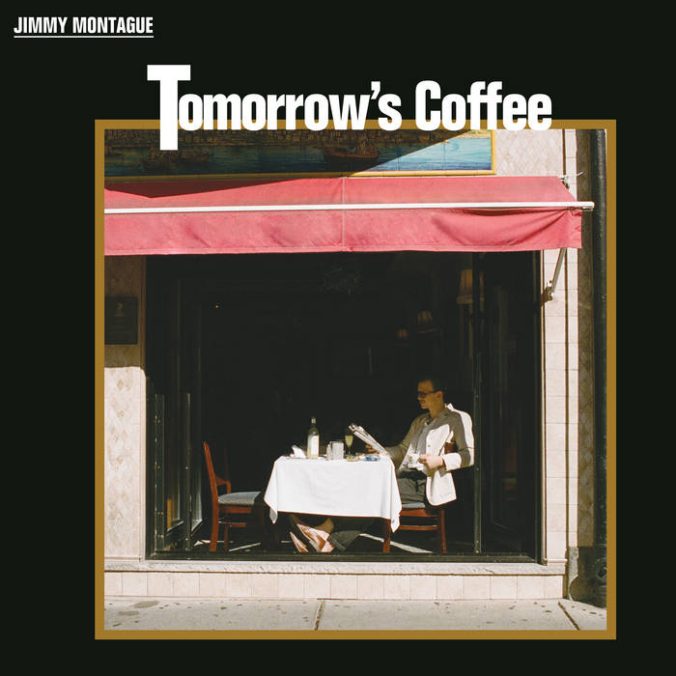 Tomorrow’s Coffee is a project relentless in its own pursuit of stringing together 10 sticky tracks of the like. Good luck finding a crack in this album. The festivities kick off with “Tell You That You’re Right” and its Nick Lowe-style, organ-licked opening melody that explodes into a solo breakdown that puts the focus on rhythm and plenty of it. “No New Starts (For Broken Hearts)” has a certain jingle to it that is the antithesis to anthemic projection, as James Palko muses on goodbyes and fresh beginnings. “Was writing all my fond farewells to ones I used to kiss and tell,” he sings, “on postcards from the corner store when, if only for a moment, had a thoughtful observation that the other side of the line’s been cut.” The song is sublime, euphoric in its own attempts to collage rockabilly and Broadway whimsy—and the “shoo-bop” melody breakdown near the track’s conclusion will make you feel like you’re one of those crooners singing next to a burning trash can in Rocky. “The Smoke After the Kill” sounds like a cigarette after a meal tastes, adopting right-of-the-dial, ageless and liquid rhythms paired with warm harmonies that sound like mid-century session begats and fine-tuned, peculiar pop re-awakenings. It’s the little things that plug Tomorrow’s Coffee with such grace: tropical guitar strums; featherlight percussion pressure points; Palko’s singing, which sounds like it’s coming from inside a white blazer chest pocket.
Tomorrow’s Coffee is a project relentless in its own pursuit of stringing together 10 sticky tracks of the like. Good luck finding a crack in this album. The festivities kick off with “Tell You That You’re Right” and its Nick Lowe-style, organ-licked opening melody that explodes into a solo breakdown that puts the focus on rhythm and plenty of it. “No New Starts (For Broken Hearts)” has a certain jingle to it that is the antithesis to anthemic projection, as James Palko muses on goodbyes and fresh beginnings. “Was writing all my fond farewells to ones I used to kiss and tell,” he sings, “on postcards from the corner store when, if only for a moment, had a thoughtful observation that the other side of the line’s been cut.” The song is sublime, euphoric in its own attempts to collage rockabilly and Broadway whimsy—and the “shoo-bop” melody breakdown near the track’s conclusion will make you feel like you’re one of those crooners singing next to a burning trash can in Rocky. “The Smoke After the Kill” sounds like a cigarette after a meal tastes, adopting right-of-the-dial, ageless and liquid rhythms paired with warm harmonies that sound like mid-century session begats and fine-tuned, peculiar pop re-awakenings. It’s the little things that plug Tomorrow’s Coffee with such grace: tropical guitar strums; featherlight percussion pressure points; Palko’s singing, which sounds like it’s coming from inside a white blazer chest pocket.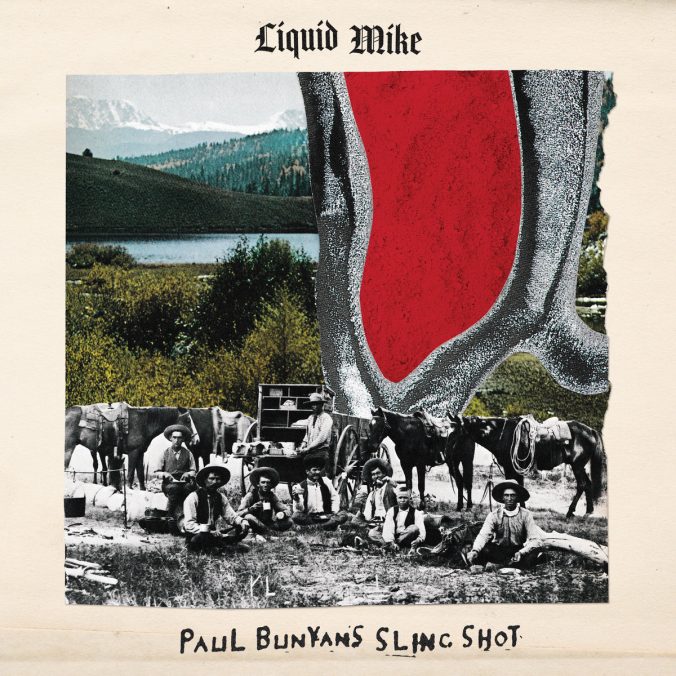 Within the first three tracks of Liquid Mike’s new album, Paul Bunyan’s Slingshot, the band drops the listener in an isolated, indiscriminate town that leaves its inhabitants to their own devices, giving them no choice but to make their own mythologies. Though I cannot condone the opener’s titular activity, metallic rip-roarer “Drinking and Driving” just begs to be blasted from car windows while tearing up the highway (I must emphasize for moral and legal reasons, sober). The following “K2” is the obligatory “get-out-of-this-town” banger, crashing in with bright shiny guitars, evoking hazy nostalgia for summers past and referencing Coldplay in the most perfectly gross way possible (“You pissed your pants and they were all yellow”). The deliciously power poppy chorus of “Town Ease” offers the record’s simplistic semi-thesis statement, “we can’t think of anything to do,” its catalyst for the (usually stupid) attempts at shaking off small town boredom.
Within the first three tracks of Liquid Mike’s new album, Paul Bunyan’s Slingshot, the band drops the listener in an isolated, indiscriminate town that leaves its inhabitants to their own devices, giving them no choice but to make their own mythologies. Though I cannot condone the opener’s titular activity, metallic rip-roarer “Drinking and Driving” just begs to be blasted from car windows while tearing up the highway (I must emphasize for moral and legal reasons, sober). The following “K2” is the obligatory “get-out-of-this-town” banger, crashing in with bright shiny guitars, evoking hazy nostalgia for summers past and referencing Coldplay in the most perfectly gross way possible (“You pissed your pants and they were all yellow”). The deliciously power poppy chorus of “Town Ease” offers the record’s simplistic semi-thesis statement, “we can’t think of anything to do,” its catalyst for the (usually stupid) attempts at shaking off small town boredom. Weird Faith is an album that feels like a purposeful underlining of Madi Diaz’s recent successes. If History of a Feeling was the mess of emotions, Weird Faith is the cool-headed exhale. Uplifted by healthier relationships and a hopeful outlook, Diaz stands in her healing. There is, however, a tinge of anxiety that never seems to leave her. The opener, “Same Risk,” is a powerful, vulnerable negotiation with a partner about the inherent power dynamic between them. She seeks reassurance; her nervous energy is palpable: “Do you think this could ruin your life? / Cause I can see it ruining mine,” Diaz sings. Just a few songs later she offers up what may as well be a more grown-up rebuttal to History of a Feeling’s “Think of Me.” That song was marked by the feeling of betrayal and hurt, venom sprayed at a cheating ex and his new partner. Here, on “Girlfriend,” Diaz instead extends grace—addressing her new boyfriend’s ex-girlfriend, she is honest about the insecurities she feels and empathizes with this woman’s pain. Musically, “Girlfriend” and “Same Risk” highlight the way that Weird Faith deviates ever so slightly from Diaz’s winning formula. The focus remains squarely on her, but there are new, more considered dynamic changes. Songs reach higher, more cathartic heights, but they do so without a gradual build. Instead, the peak is sudden; they seem to float effortlessly off the ground. Weird Faith is not only an album trying to bolster Diaz’s success; it often feels like it’s trying to expand on it, as she makes clear attempts at widening her reach. —Eric Bennett [
Weird Faith is an album that feels like a purposeful underlining of Madi Diaz’s recent successes. If History of a Feeling was the mess of emotions, Weird Faith is the cool-headed exhale. Uplifted by healthier relationships and a hopeful outlook, Diaz stands in her healing. There is, however, a tinge of anxiety that never seems to leave her. The opener, “Same Risk,” is a powerful, vulnerable negotiation with a partner about the inherent power dynamic between them. She seeks reassurance; her nervous energy is palpable: “Do you think this could ruin your life? / Cause I can see it ruining mine,” Diaz sings. Just a few songs later she offers up what may as well be a more grown-up rebuttal to History of a Feeling’s “Think of Me.” That song was marked by the feeling of betrayal and hurt, venom sprayed at a cheating ex and his new partner. Here, on “Girlfriend,” Diaz instead extends grace—addressing her new boyfriend’s ex-girlfriend, she is honest about the insecurities she feels and empathizes with this woman’s pain. Musically, “Girlfriend” and “Same Risk” highlight the way that Weird Faith deviates ever so slightly from Diaz’s winning formula. The focus remains squarely on her, but there are new, more considered dynamic changes. Songs reach higher, more cathartic heights, but they do so without a gradual build. Instead, the peak is sudden; they seem to float effortlessly off the ground. Weird Faith is not only an album trying to bolster Diaz’s success; it often feels like it’s trying to expand on it, as she makes clear attempts at widening her reach. —Eric Bennett [ But while serpent first became known for an experimental gothic sound, his third album GRIP sees him continuing to build on the joyful portrayal of gospel and Black queer love showcased on DEACON, with kinetic instrumentals that harken back to early-aughts R&B. Drawing inspiration from the sonic innovation of Y2K royalty Timbaland, Missy Elliott, Brandy and Pharrell, serpent set out to make a project that honored the culture that raised him a second time as he came to terms with his sexuality. “Damn Gloves,” the project’s sex-laced lead single, makes excellent use of contributions from Ty Dolla $ign and Yanga YaYa, with a pulsating club beat, dark synths and erotic refrain (“If we keep on dancing we gon’ make love / Hold you closer, closer than those damn gloves”). Stripped down track “Deep End,” meanwhile, listens like a More Life-era Drake cut, and it shows the softness waiting on the other side of late nights (“Twelfth night of our one-night fling / Your coworkers think I’m cute, are we a thing?”). On his third outing, serpent’s personal and artistic growth is on full display as he continues to explore and embrace the breadth of his own human complexity. —Elizabeth Braaten [
But while serpent first became known for an experimental gothic sound, his third album GRIP sees him continuing to build on the joyful portrayal of gospel and Black queer love showcased on DEACON, with kinetic instrumentals that harken back to early-aughts R&B. Drawing inspiration from the sonic innovation of Y2K royalty Timbaland, Missy Elliott, Brandy and Pharrell, serpent set out to make a project that honored the culture that raised him a second time as he came to terms with his sexuality. “Damn Gloves,” the project’s sex-laced lead single, makes excellent use of contributions from Ty Dolla $ign and Yanga YaYa, with a pulsating club beat, dark synths and erotic refrain (“If we keep on dancing we gon’ make love / Hold you closer, closer than those damn gloves”). Stripped down track “Deep End,” meanwhile, listens like a More Life-era Drake cut, and it shows the softness waiting on the other side of late nights (“Twelfth night of our one-night fling / Your coworkers think I’m cute, are we a thing?”). On his third outing, serpent’s personal and artistic growth is on full display as he continues to explore and embrace the breadth of his own human complexity. —Elizabeth Braaten [ Surrounded by the kind of frenetic mania not seen for a new band in years, prospects for The Last Dinner Party’s debut record are impossibly high. But with the oh-so-aptly-titled Prelude to Ecstasy, the band doesn’t simply justify the hype surrounding them—they surpass it with flying colors. Collaborating with legendary English producer James Ford (known for his work with indie heavyweights like the Arctic Monkeys, Florence + the Machine, Gorillaz, Depeche Mode and HAIM, among others), the group recorded a rare lightning-in-a-bottle project that feels as much like a seminal work of literature as it does an album. Of course, upon first listen, many will be met with a slew of familiar favorites. “Caesar on a TV Screen” shines in all its 21st century-infused Shakespearean glory; “On Your Side,” with its gentle piano and airy vocals, plays like a futuristic Kate Bush track; guitar-pop heavy songs “My Lady of Mercy” and “Sinner” are irresistibly head-rolling. And who could forget the one that started it all—the aforementioned smash hit “Nothing Matters.”
Surrounded by the kind of frenetic mania not seen for a new band in years, prospects for The Last Dinner Party’s debut record are impossibly high. But with the oh-so-aptly-titled Prelude to Ecstasy, the band doesn’t simply justify the hype surrounding them—they surpass it with flying colors. Collaborating with legendary English producer James Ford (known for his work with indie heavyweights like the Arctic Monkeys, Florence + the Machine, Gorillaz, Depeche Mode and HAIM, among others), the group recorded a rare lightning-in-a-bottle project that feels as much like a seminal work of literature as it does an album. Of course, upon first listen, many will be met with a slew of familiar favorites. “Caesar on a TV Screen” shines in all its 21st century-infused Shakespearean glory; “On Your Side,” with its gentle piano and airy vocals, plays like a futuristic Kate Bush track; guitar-pop heavy songs “My Lady of Mercy” and “Sinner” are irresistibly head-rolling. And who could forget the one that started it all—the aforementioned smash hit “Nothing Matters.”






































